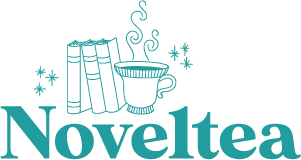Thanks to Jacinta for this guest review of our April Classic!
The Happy Prince is one of several short stories by Oscar Wilde that focuses on themes of compassion and generosity.
The story is set in a grand city, where a large wall separates the affluent from the poverty stricken. The distinction between these two worlds is embodied by a statue of the titular prince, who in life lived in ignorance behind the wall while after his death his statue looks out over the misery of the city and weeps.
I read the book many times as a child. The developing relationship between the princes’ statue and a sparrow who waited too long to migrate, together with their humble efforts to bring relief to many of the sick and destitute around them, captured my imagination even as many of the satirical elements went over my head. The prince was always happy in life - “if pleasure be happiness” - but on the other side of the wall he finds it impossible to hold value in his beauty and wealth, prefering to strip every last bit of it away in support of those around him. While his own worth in the eyes of others is diminished by his descent into a shabby appearance, he gains through this exercise the sincere love and care of the sparrow who helps him. A story about friendship and kindness, The Happy Prince is a great read for children who are still developing their sense of empathy. While the story has a decidedly Christian ending, non-secular parents can still draw from it a message of true value and happiness that is worth teaching children.
Revisiting the tale as an adult, however, I found a much more complex message hidden within this simple story of self-sacrifice. Wildes’ subtle mockery of societal hierarchies and self-consequence is interplayed with his sincere renderings of poverty, and the value many of his characters place on aesthetic pleasure over human happiness finds new teeth in the current social climate. Displays of wealth and status have always existed in sharp contrast with the struggles of poverty faced around the globe. However, the current world-wide surge in unemployment, illness and poverty combined with unprecedented access to excessive displays of wealth through the internet has reinforced the wall of riches to be a stronger divide than ever while revealing much of what goes on behind it. While the majority of the world sacrifices much of their basic needs to protect the vulnerable and stop the spread, it seems that many celebrities and social media influencers have no problem attending massive parties and ignoring guidelines, or wasting tests and putting service workers in danger to meet their desire for some stress-relief and/or new content.
It seems that despite seeing the stress and suffering of those around them, there are many who will continue to value aesthetic displays of wealth and personal pleasure over the well-being of their communities. In contrast, mutual aid has run strong from inter-personal stories to broader community action. One story ran through my mind during this re-read: Dolly Parton, instrumental in the funding of the coronavirus vaccine through a heft donation, humbly declined to have her image raised in a statue outside the Tennessee capitol calling it “inappropriate” to put her on a pedestal during this time. In stories of mass strife, acts of individual generosity can inadvertently act as a screen over the greed of those who are empowered to prevent much-needed systematic change. Both Oscar Wilde and Dolly Parton seem well aware of the pitfalls that can accompany aesthetic gestures, and of the importance of embracing loving, humble compassion.
Overall, The Happy Prince is an interesting read, with lasting relevance in both its sincerity and its satire. In the spirit of spreading joy during difficult times, the book was included in April's Classic NovelTea book parcel, where the little sparrow and his statue friend have hopefully brought some enjoyment to our subscribers.

